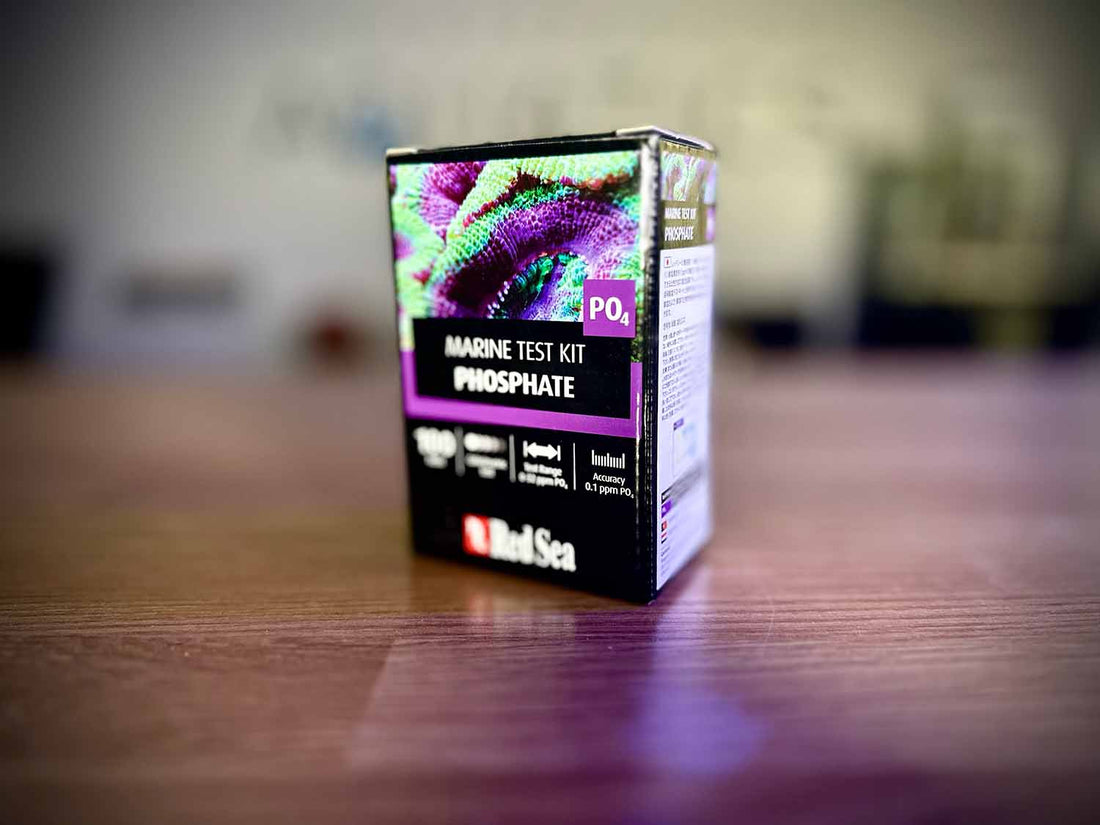Maintaining a pristine reef tank involves monitoring various water parameters, with phosphate being one of the critical elements. Elevated phosphate levels can lead to a range of issues, including unwanted algae growth and poor coral health. In this blog post, we will explore the causes of phosphate in reef tanks, its effects on marine life, and effective solutions to manage and reduce phosphate levels. We’ll also provide links to top products available at Charterhouse Aquatics to help you maintain optimal water quality.
What is Phosphate?
Phosphate (PO4) is a naturally occurring compound found in all aquariums. It originates from several sources, including fish waste, uneaten food, decaying plant material, and even tap water. While low levels of phosphate are not harmful, elevated levels can disrupt the delicate balance of a reef tank.
Causes of Elevated Phosphate Levels
1. Overfeeding
Excessive feeding can lead to an accumulation of uneaten food, which decomposes and releases phosphate into the water. Proper feeding practices are essential to prevent these spikes.
2. Poor Water Source
Using tap water that contains phosphates can introduce unwanted levels into your reef tank. It's essential to test your water source and use purified water if necessary.
3. Decaying Organic Matter
Organic matter such as fish waste, dead plants, and uneaten food decomposes, releasing phosphate into the water. Regular tank maintenance is crucial to prevent the buildup of organic waste.
4. Inefficient Filtration
A filtration system that is not functioning properly or is undersized for the tank can fail to remove phosphates effectively, leading to elevated levels.
5. Phosphate Leaching
Some types of rocks, substrates, and decorations can leach phosphate into the water over time, contributing to increased levels.
Effects of Elevated Phosphate Levels
Elevated phosphate levels can have several adverse effects on your reef tank, including:
1. Algae Blooms
High phosphate levels promote the growth of unwanted algae, which can cover corals and other tank surfaces, blocking light and competing for nutrients.
2. Poor Coral Health
Phosphate can inhibit the growth and health of corals, leading to reduced coloration, slower growth rates, and increased susceptibility to diseases.
3. Disrupted Water Chemistry
Excessive phosphate can disrupt the overall water chemistry of your reef tank, leading to imbalances that affect the health of all tank inhabitants.
Solutions to Manage and Reduce Phosphate Levels
1. Regular Water Testing
Frequent testing of water parameters is essential to detect and address phosphate issues promptly. Use a reliable test kit to monitor phosphate levels regularly.
Recommended Product: Salifert Phosphate Test Kit
2. Perform Water Changes
Regular water changes help dilute phosphate concentrations and remove organic waste that contributes to phosphate buildup. Aim for 10-20% water changes weekly.
3. Use Phosphate Removers
Phosphate removers are designed to bind and eliminate phosphate from the water, helping to maintain low levels.
Recommended Product: RowaPhos
4. Improve Filtration
Ensure your tank has adequate mechanical and chemical filtration to remove phosphates and other impurities. Consider using high-quality filter media designed for phosphate removal.
Recommended Product: Seachem PhosGuard
5. Use Purified Water
Use purified water such as reverse osmosis (RO) or deionized (DI) water for water changes and top-offs to prevent introducing phosphates from your water source.
Recommended Product: TMC Pure RO Unit
6. Maintain Proper Feeding Practices
Feed your fish sparingly and remove any uneaten food to prevent excess organic waste from decomposing and producing phosphate.
Conclusion
Understanding and managing phosphate levels in your reef tank is crucial for the health and well-being of your marine life. By identifying the causes of elevated phosphate levels and implementing effective solutions, you can maintain a stable and thriving reef environment. Explore the range of products available at Charterhouse Aquatics to support your reef tank maintenance and ensure optimal water quality.
For all your aquarium needs, trust Charterhouse Aquatics to provide top-quality products and expert advice. Invest in the right tools and solutions to keep your reef tank healthy and vibrant.


